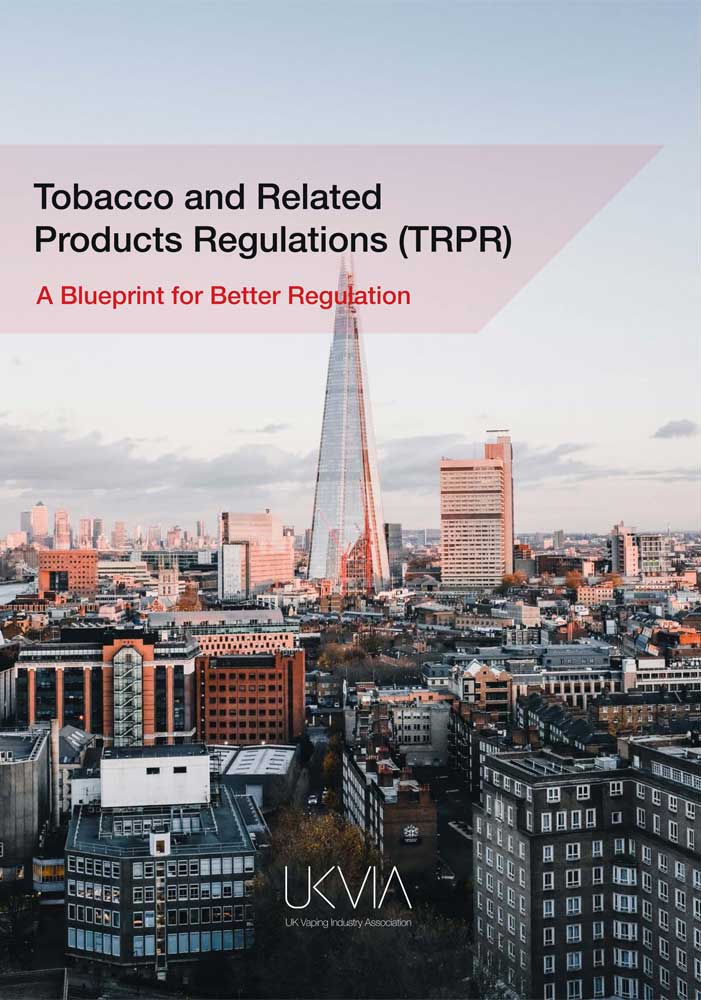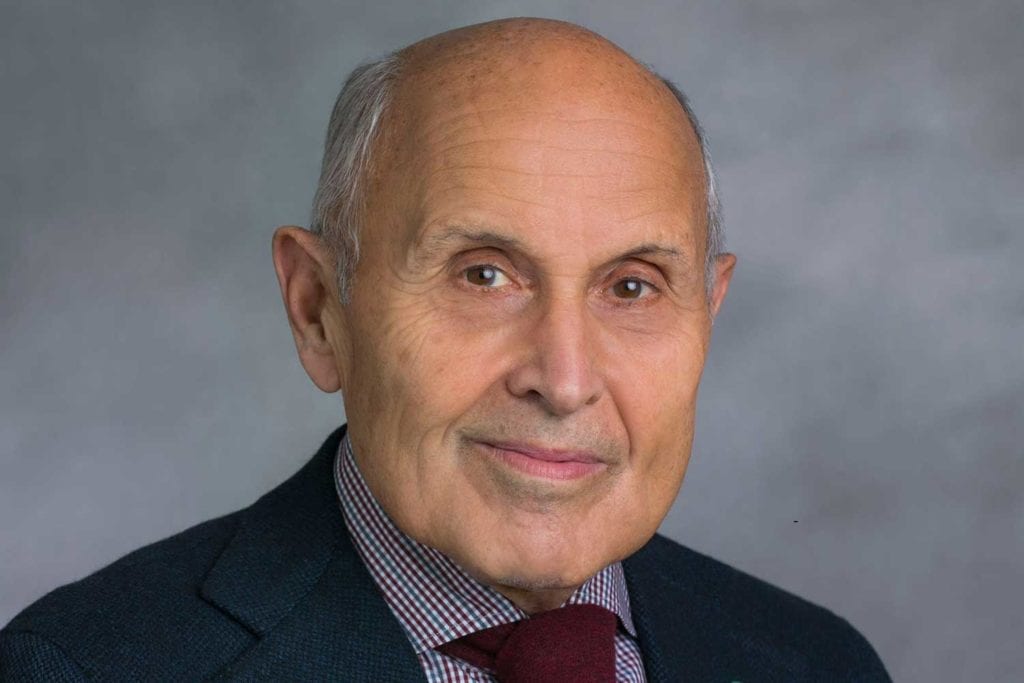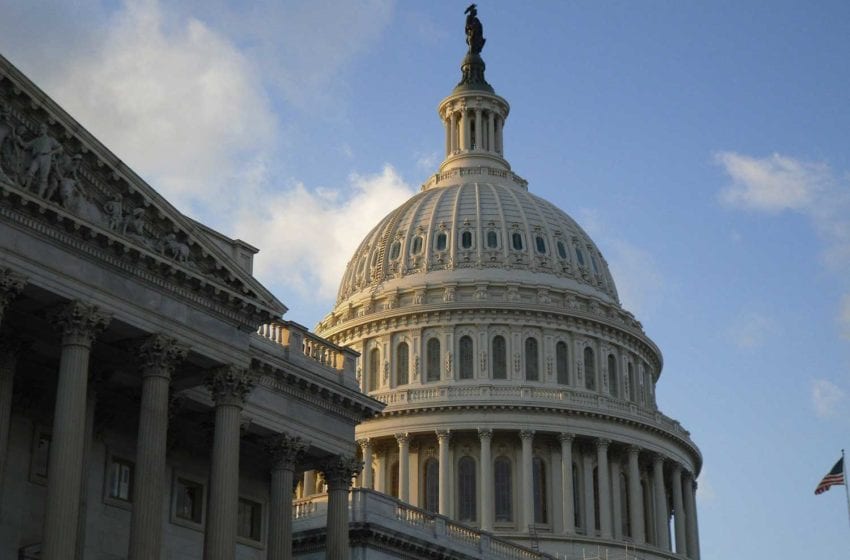The post-Brexit review of tobacco regulations provides an opportunity to hasten smokers’ transition to less-harmful nicotine products.
Writing in The Guardian on Jan. 13, associate editor and columnist Martin Kettle wrote that “in almost every material respect the U.K. is currently worse off than before 1 January.” He was, of course, commenting on Brexit, about which the government, in the words of the late music hall comedian, Billy Russell, can be said to have “promised us everything, given us nothing and, before we got it, taken it off us.” There is no Brexit dividend, only a growing Brexit deficit, which can be clearly seen even though the government is trying to brush it under the carpet laid down by the Covid-19 pandemic.
Having said that, perhaps there is at least the potential for a dividend in one specific area. There seems to be a chance that the U.K. government, which has for many years been supportive of the idea of tobacco harm reduction, might, after emerging from under the stultifying EU Tobacco Products Directive, develop tobacco and nicotine regulations fit for an age that has left behind the failed idea of quit-or-die and embraced the development of a range of new generation products that are less risky to consume than are combustible cigarettes.
Certainly, the U.K. Vaping Industry Association [UKVIA] believes there is such an opportunity. On March 15, it launched its Blueprint for Better Regulation in response to the U.K. government’s consultation on the Tobacco and Related Products Regulations (and the Standardized Packaging of Tobacco Products Regulations), in which it was seeking until March 19 feedback on the effectiveness of the legislation in achieving its objectives, and on any unintended consequences that may have occurred.
In a foreword to the Blueprint, the UKVIA’s director general, John Dunne, said the review of the regulations represented a defining moment in the history of the vaping industry, one of the leading market disruptors of the 21st century responsible for a significant decline in smoking across the U.K. It also presented the biggest opportunity yet for the government to create fair and proportionate vaping regulation that supported its 2030 smoke-free target and ensured the sector could make a bigger contribution to the nation’s public health and economy in the future.
To achieve such a goal, the UKVIA is recommending that the government takes an evidence-based approach to revising regulations that would, in part, help counter the misinformation being widely disseminated about vaping: misinformation that is providing an increasingly powerful drag on efforts to encourage people to switch from smoking to vaping, even though vaping is hugely less risky and less costly than is smoking. It wants the government and health authorities to mount campaigns aimed at encouraging such switching, and it wants the industry to be able to mount its own officially sanctioned but effective, multichannel, consumer-communication campaigns, including with those buying online. And it wants a regulated but workable environment in which its members can develop vaping products capable of competing with conventional cigarettes, especially on a nicotine-satisfaction basis.
In what might be seen as an unexpected move, but which is a smart one for an industry necessarily looking to be seen as responsible, the UKVIA is recommending that the regulations reach out to include “additional products and components,” especially nicotine-free e-liquids.
There is, of course, much more in the UKVIA’s Blueprint. No such presentation would be complete without a discussion about the important role flavors play in encouraging people to switch from smoking to vaping and the need to address e-liquid bottle sizes so as to reduce plastic waste and improve customer convenience, while not increasing the risk-profile of the e-liquids. The Blueprint looks at packaging and labeling, descriptors, and product quality and safety. It supports age restrictions on the purchase of vaping products and the need to work with trading standards officers in ensuring such restrictions are enforced. And it recommends that the government acts in relation to vaping in public places so that vaping is not conflated with smoking.
A firm deadline
What are the chances? Well, Dunne appears to be confident, and, with some justification, since, to a large extent, the UKVIA is pushing at an open door. The government could be willing to work with at least some of the UKVIA’s ideas, perhaps all of them, partly because smoking is most prevalent among disadvantaged groups and the government has been saying it wants to level-up the U.K. But caution has to be advised. Two skills the U.K. government is known for are its shape-shifting and U-turns. And one concern must be the government’s likely reaction if it found that conversions to vaping picked up so fast that tax revenues from tobacco fell dramatically.
And in this regard, I feel the UKVIA might have missed a trick, though I’m sure it must have crossed its members’ minds and, for some reason, been rejected. To cement things in place, might it not have been a good idea to ask the government to declare a date, some years ahead, on which combustible cigarettes could no longer be sold legally within the U.K.? I know that some would complain that this would be prohibition, while tagging on the rusty old argument that alcohol prohibition didn’t work in the U.S. and therefore it wouldn’t work with cigarettes anywhere. But the conflation of alcohol prohibition in the U.S. and a potential tobacco prohibition elsewhere never comprised a rational argument. And, in any case, what is being suggested is not prohibition but substitution and transition. Smokers would not be being abandoned, because they could still get a nicotine fix after cigarette sales were banned.
One of the arguments for putting such an end date in place would be that it would focus minds. It is clear that where the automobile industry has been presented with end dates for the sale of vehicles powered by fossil fuels, manufacturers have steamed ahead and some have been encouraged to aim at beating the deadline. From combustion to batteries; there has to be a connection.
Of course, the implementation of such a deadline in respect of combustible cigarettes would have to be dependent on regulations being changed so that those involved in the development of new-generation, tobacco-harm-reduction products could operate in a regulated but not restrictive environment. In fairness to smokers, it would need to be the case that they were presented with products that reproduced where possible at least the characteristics of smoking that most attracts them to the habit.
There is something else, too. Switching messages listed in the Blueprint seem to be way too long: 12-21 words apiece. If there is one thing the U.K.’s Conservative Party, the party of government, is good at, it is effective messaging, which it likes to keep to three or four words. I mean, if you can get people to vote for the Conservatives with the message, “Get Brexit done,” imagine what you could do with: “Don’t smoke, vape.” And while it’s at it, why shouldn’t the government require messages on combustible-cigarette packaging that say: “Switch to vaping”; or “Get switching done.”
Formidable opponents
One problem in all of this is that there are some powerful forces acting against tobacco harm reduction. In March, the UKVIA issued a press note, titled, “The U.K. Vaping Industry Association [UKVIA] blasts World Health Organization and says it risks becoming an ‘enemy of harm-reduction.’” What the UKVIA objected to in the first instance was what it described as “[r]ecent recommendations made by the WHO study group on Tobacco Product Regulations that would prohibit electronic nicotine and non-nicotine delivery systems where the user can control device features and liquid ingredients.” But it said also that the WHO had called for a ban on vaping systems that have a higher “abuse liability” than conventional cigarettes have; systems that, for example, allow the user to control the emission rate of nicotine.
Dunne made the point that vaping’s success as an industry, and its potential for public health improvements, were built on empowering personal choice. “Different systems, styles and flavors give consumers the options they need to leave combustible cigarettes behind,” he said. “I would urge the WHO to engage with vapers, to hear their stories and discover the life-changing decisions they’ve made… Prohibition is simply not the answer.”

The U.K. has a genuine opportunity to promote harm-reduction as a valid, progressive strategy for public health on the world stage.
John Dunne, director general, UKVIA
Dunne believes the WHO poses a threat to smoking-cessation and harm-reduction in the U.K. because it is out of touch. He said, for instance, that the WHO claimed there was little evidence that vaping helped people to quit smoking. But Public Health England had found in its Vaping Evidence Review 2021 that smoking quit rates involving a vaping product were higher than with any other method in every English region. “For the WHO to hold such contrary views is either bad science or bad faith,” he added. “Both risk it becoming an enemy of harm-reduction.”
The press note said also the U.K. was due to send a delegation to the COP9 meeting, the November 2021 Conference of the Parties to the WHO’s Framework Convention on Tobacco Control. This would be the first time the U.K. had attended such a meeting since leaving the EU, and the UKVIA had been among expert guests invited by the All-Party Parliamentary Group for Vaping to advise on the COP9 delegation’s approach. “The U.K. has a genuine opportunity to promote harm-reduction as a valid, progressive strategy for public health on the world stage,” said Dunne. “We must not allow misinformation to undermine this potential, irrespective of the source.”
But the UKVIA has a further problem. In another press note in March, it said it was deeply concerned by news that U.K. businesses were being impacted by the U.S.’ “Vape Mail” ban, part of a congressional spending bill passed under former President Trump. By April 5 [after this report was written], leading carriers such as UPS, FedEx, DHL and the U.S. Postal Service were due to be off-limits for vaping shipments.
“The vaping supply chain is a global one, bringing together resources and expertise from around the world,” said Dunne. “It is bitterly disappointing to see these American restrictions having a negative impact in the U.K., but the nature of the supply chain makes it inevitable. In the EU too we are hearing of vaping businesses being turned away from major carriers.
“The potential impact on public health is grave, as so many people are relying on shipped goods as a lifeline during the pandemic. Without proper access to harm-reduction products we know people can revert to smoking cigarettes, today in the U.S. but perhaps tomorrow in the U.K. With businesses already struggling through lockdown, and our health services under great strain, supply chain issues really are the last thing we need.”


























